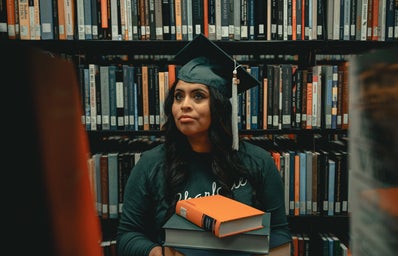With his thick French accent, Longchamp briefcase and passing resemblance to Daniel Radcliffe, Paul Fourgous ‘15 is certainly one of the most recognizable students at Bates. Hailing from a city in France (Paris, you may have heard of it?), this impeccably dressed European keeps busy with a double major in Mathematics and Economics, as well as holding the office of President of Student Clubs, while still finding time to play intramural soccer and instigating a controversial debate at every meal in Commons. Cheeky but charming, Paul is never afraid to tell it like he sees it.
“It will be hard work making me look good,” he comments as we sit down with Bates’ favorite Frenchman to pick his brain about cultural differences, the French educational system and his work in student government. So how does a Parisian end up in Lewiston, Maine, despite France’s reputable university system?
[I wanted] to discover a culture that will make myself grow – give myself a challenge,” he says. “I could have gone to some good French universities, but I didn’t want to be like everyone else. I wanted to do something different, and I wanted to learn English on the side.”
On picking Bates, he admits that he thought he been accepted to school in England, comparing Bates to another school he applied to – Bath. However, after visiting Bates, he says that he knew it was the place for him. “[People] were holding the door even though you were 20 meters behind, waiting for you, and professors were taking time to talk to you…in France, they don’t really do that.”
Paul has found the American educational system to be quite different from France, especially how it prepares students for the job market.
“In America, you can major in whatever, philosophy or psychology, and go into private banking after, but in France, when you study something, that is where your job is going to be.”
In France, students must choose among three specialties (sciences, economics, literature) at the end of their first year of high school (age 15), and this decision affects which university they will attend and what careers they will ultimately have.
“If you choose scientific, you can do anything you want,” Paul explains. “If you choose economics, you cannot do engineering, so it closes some doors. Literature closes even more doors. If you choose literature, it is really hard to go to business school. You have to specialize very early.”
Paul has also found that American students are more likely to enter the job market earlier, with internships and summer jobs. According to Paul, French students actually treat summer vacation as a holiday.
“My French friends, they tell me ‘Dude, you cheat. You have like an American-style resume. You do internships, you do so many things,’” Paul says. “It doesn’t mean I’m smarter; it’s just the American culture that wants you to beef up your resume much more.”
One of the top positions on Paul’s resume is his position as the President of Student Clubs, where his job includes approving new clubs on campus. Involvement in student government has been a lifelong commitment for Paul, a born politician, who only remembers two school years when he was not class president. His eyes light up when he talks about his office, comparing it to pitching to investors.
“You have some people who are passionate about something,” he says. “They come to you, and in private equity, they need your money to realize their dream – their project – that will be good for society. At Bates, they need your approval, so they can actually do it and be good for the community.”
France’s future ambassador to the United States has also been honing his diplomacy skills.
“We had a pro-Palestinian club that was created at Bates a month ago,” Paul recalls. “I had the president of the pro-Israeli club come, and I felt like an international diplomat because I was ‘Okay guys, shake hands.’ You feel very useful to the community, it’s a good feeling.”
Additionally, he has been working on his diplomacy skills by fighting French stereotypes on campus. With a small laugh, noting that he must tread carefully with this subject, Paul determines that the most accurate stereotype is the French joie de vivre, commenting that they have “mastered how to enjoy life,” pointing out the high-quality, world-renowned cuisine as an example. The most frustrating stereotype, on the other hand, is the typecasting of the Frenchman as a lothario.
“It is bad for me because of my girlfriend,” he says. “The one that I was surprised to hear freshman year was that French people don’t shower. We don’t shower, and I’ve heard that’s why we have good perfume – to hide our smell. And French girls don’t shave their pits.” Just to clarify, Paul would like to debunk all three stereotypes. “Please advertise that,” he asks. “I’ve been trying for the last three years.”

